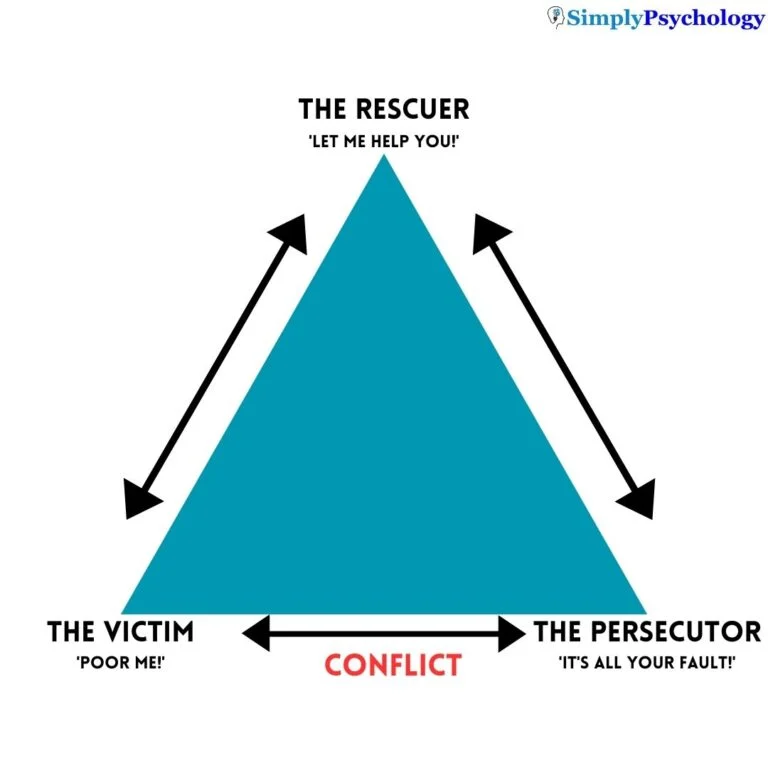In the realm of relationships, power dynamics play a significant role in shaping interactions between individuals. One such dynamic that often goes unnoticed yet is widely recognized as a toxic behavior is triangulation. This manipulation tactic is particularly common among individuals with narcissistic tendencies and can manifest in both overt and subtle ways, often catching people off guard and making them realize they have been manipulated only when it’s too late.
People who habitually manipulate others resort to triangulation because it is an effective, low-cost, yet high-yield strategy. This behavior is not strictly confined to romantic relationships; it permeates various types of relationships, including friendships, family dynamics, and even professional environments. But what exactly is triangulation? Why is it such a prevalent manipulation tactic? And how can one identify it before it wreaks havoc?
What is triangulation?
Most of us like to believe that nearly everyone aims to treat others as they wish to be treated. However, this is not the case, there are many people who actively manipulate others for personal gain. In Psychology, triangulation is a form of manipulation used to exploit an interaction between two people in conflict who are not communicating directly.
Triangulation occurs when one or both parties try to pull a third person into the dynamic to assume the role of the rescuer. For example, a couple arguing might turn to a friend, encouraging them to take a side or help work things out often with the goal of:
• creating another conflict to distract from the original issue
• deflecting some of the tension
• reinforcing their sense of rightness or superiority

People with narcissistic personality disorder (NPD) or narcissistic tendencies use triangulation to maintain control over situations by manipulating others. Communication between the two triangulated individuals is usually limited or non-existent, except through the manipulator. This creates a communication triangle, often exacerbating conflicts and misunderstandings.
There are three distinct roles portrayed within triangulation. The person utilizing triangulation as a manipulation tactic may take on any of these roles, although they most commonly adopt the role of persecutor or victim.

Persecutor: The persecutor is the individual who initiates and controls the triangulation. They use language and actions that are hostile, and aggressive, often employing tactics such as spreading misinformation, instigating conflicts, playing the victim, or creating alliances to maintain their control. They thrive on the chaos and division they create, as it solidifies their position of power.
Victim: This person is often the primary focus of the manipulator’s efforts to control or harm. The victim attempts to gain sympathy and attention by acting helpless or hurt, shifting the blame and responsibility onto others. Due to the manipulator’s tactics, the victim might experience a range of negative emotions, including anxiety, insecurity, and self-doubt, as they struggle to understand and respond to the manipulation.
Rescuer: The rescuer tries to make themselves look like the ‘hero’ by jumping in to save the situation. This person is drawn into the conflict by the manipulator, they can be an unwitting participant who genuinely believes they are helping, or they might be a willing accomplice who benefits from the manipulator’s actions. In some cases, they may be manipulated themselves and unaware of the full extent of the situation. The rescuer serves to legitimize the manipulator’s narrative, deflect tension from the manipulator, and further isolate the target.
Their involvement can exacerbate the conflict. This behavior can manifest in various forms but often centers on dividing and conquering or playing people against each other. This manipulation tactic can leave the person being triangulated feeling off-balanced, developing a creeping sense of insecurity, and can even cause one to begin to doubt and question themselves.
Signs of triangulation
Identifying the signs and symptoms of triangulation is essential in recognizing and addressing the manipulative tactics present in the relationship. Here are some common signs to look out for:

Constant comparison
when a manipulative person wants you to bend to their will, they may try to compare you to a third party, highlighting your flaws and shortcomings to create a sense of competition and insecurity. They may not directly state the comparison instead; they will be diplomatic about it.
Indirect communication
Instead of addressing issues directly, the manipulator involves a third party to communicate or resolve conflicts and take their side. Narcissists always avoid communicating one-on-one with their partners and solving any current issue. Whenever they are wrong, they will employ all means to avoid being on the losing side.
Playing the Victim
The manipulator often portrays themselves as the victim to gain sympathy and support from the third party.
Gaslighting
They tend to manipulate the victim’s perception of reality, making them doubt their own experiences and feelings. They may even deny or invalidate the victim’s concerns about the third party’s involvement to further destabilize them.
Isolation
The manipulator works to isolate the victim from their support system, making them more dependent on the manipulator for validation and support. This ensures that the victim isn’t able to seek help or perspective from others.
How to deal with narcissistic triangulation

Understanding how narcissistic triangulation is used can make it easier to recognize when someone is trying to manipulate or control you, thereby helping you manage the impact of the situation. Dealing with triangulation, particularly with narcissistic individuals, requires careful strategies. It’s important to remember that you can only control your own actions.
While you cannot change the actions of those who are trying to manipulate you, there are a few strategies you can try:
• Set Boundaries: Establish and maintain clear boundaries to prevent the manipulator from involving third parties in your conflicts. Communicate your needs and expectations and be firm in asserting your autonomy and refusing to engage in their manipulative tactics.
• Maintain your self-control: Try your best not to lose your temper and take control of your feelings when provoked. Ensuring you keep a tight reign on your self-control helps you to stay in control. This is how you keep your power and demonstrate that you will not be manipulated.
• Seek Clarity: If you suspect triangulation, seek clarity and confirmation from the other parties involved before taking any action. It’s okay to verify the information and to learn more about what you are being told to ensure the information is not being distorted by the manipulator.
• Direct Communication: Whenever possible, address issues directly with the involved parties. Avoid getting entangled in indirect communication or taking sides. It might feel scary at first to address the manipulator especially if they are a narcissist but be open with your words, let them know that you are aware of their behavior and that it’s affecting you and the relationship. Remove yourself from a conversation if you sense it turning unhealthy or dysfunctional. You can always return to a topic later when you feel more prepared or tensions aren’t running so high.
• Have your own support system: Having family or friends to talk to can help you avoid being part of narcissistic triangulation. If you experience a disagreement or difficulty, you can go to trusted people to discuss it and receive support to resolve the situation without conflict or encountering manipulation tactics. Don’t leave out your side of the story when conversing with your support system. Instead, remain calm and avoid playing the same cards as the manipulative person.
• Seek professional support: Triangulation can be a symptom of a serious problem like emotional abuse. Consider working with a therapist to gain further insight and guidance on your healing journey. Remember, healing takes time, and it is a process unique to each individual. Be patient with yourself, celebrate your progress, and know that you have the strength within you to overcome the effects of triangulation.
Triangulation is a sinister manipulation tactic employed by narcissists to maintain control and dominance over their victims. If you constantly feel like you’re walking on eggshells with someone, or if you can never quite discern their true intentions, they might be employing this strategy. Healthy communication involves honesty and a willingness to resolve conflicts rather than creating them.
Understanding triangulation and recognizing its signs can empower you to protect yourself from this manipulative tactic. If you suspect you are experiencing triangulation or engaging in it, it’s important to know that help is available. Speaking with a therapist can guide you towards healthier, more productive ways of communicating and coping.

